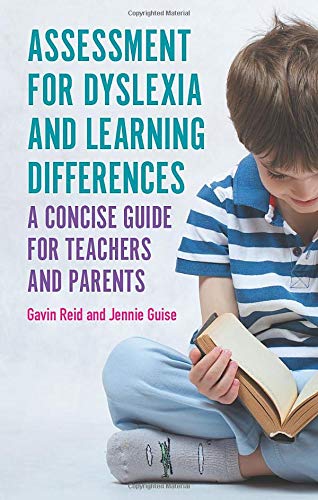
For many young people, an assessment of learning styles and learning difficulties can be very helpful.
In particular, because Jennie focuses on strengths, the assessment can provide a pupil with a positive view of his or her abilities, and an explanation of why they find some areas of learning can be more difficult. The assessment gives pupils, as well as parents and teachers working with them, a chance to plan strategies to overcome challenges.
At secondary level, Jennie focuses particularly on the development of study skills and can also advise on exam arrangements which could include extra time, access to a computer in exams, or the provision of a reader and/or scribe.
Pupils benefit from an assessment in many ways. An assessment of dyslexia can boost self-esteem and help to develop coping strategies for learning that will be positive and useful for performance at school and throughout adult life. In our reports, we provide an overall picture of the pupil’s abilities and difficultie,s as well as clear and attainable ways of helping them to show their strengths.
If a pupil is assessed as dyslexic or with another Specific Learning Difficulty, Jennie can recommend a range of access arrangements including extra time, use of computers, and where appropriate, the provision of a reader and/or scribe. A full assessment can provide a strong case for assistance. Please note, though, that access arrangements are put in place by the pupil’s school or local authority, and they also have to support any application. Generally, evidence is required from the school that any exam arrangement provided makes a significant difference, and that it represents the pupil’s normal way of working.
For schools following the English curriculum, Jennie tailors assessments to comply with the requirements of the Joint Council for Qualifications (JCQ), and can also complete the required JCQ Form 8 but it is important to note that the school has to be involved in this process.
Jennie also assess international pupils who are doing iGCSEs or following the International Baccalaureate.
Case study: Anna
After years of frustration and struggling to cope with reading, writing and learning, Anna was assessed by Jennie Guise as dyslexic – with only a month to go before her standard grade exams. Her High School gave Anna extra support after her assessment, and she got a better grade in English than she expected. The 16-year old from Penicuik is now doing a course in Dance at Edinburgh’s Telford College.
Anna’s mum Lynne said, “I think Anna struggled in High School because she couldn’t take things in. Her problems with reading, writing and short term memory made it hard for her to learn. And she felt really isolated. We knew she was really unhappy, so when she decided to leave, we supported her decision.”
Lynne got Anna a private assessment after a school test came back with the result that she was ‘borderline dyslexic’. “So I found out about specialists in the area, and approached Jennie at DysGuise.” The assessment confirmed Anna was dyslexic, and in the report DysGuise recommended that Anna should be able to work from a laptop, get extra time, and have the support of a reader for her exams.
“Getting the assessment was a huge relief for Anna. She had been an active reader when she was younger, and had built up strategies to hide her problems. But one of the things that stood out in the report was that it was really positive about Anna and the way she learns. The report said she had gifts, and that Anna was artistic. Jennie told her she could achieve things if she set her mind to it. It really encouraged Anna.”
Anna had learning support from Primary 1 up to Primary 5, but continued to struggle with English at Secondary school, so her parents got her support from a private tutor who shared Lynne’s concerns about Anna, and advised her to get assessed for dyslexia.
“After the assessment, the tutor told us that she could that see Anna felt better in herself. She is much more motivated now. We used to have to drag her out of bed to go to school, she was so unhappy. But now she is up early every day and loves going in to her classes. She will go even if she has an injury.”
“I think it will definitely help to rebuild Anna’s confidence. Now she is at College, she still has to repeat things to learn new things, and doesn’t find it easy to write essays, but she is not afraid to go and ask for help.”
Case study: Helen
Eleven year-old Helen was experiencing some learning difficulties. Ros, her mum, said “She seemed to have lost all her confidence. Her self-esteem was so low and she couldn’t sleep at night. I think she felt like she just couldn’t succeed at anything. I was doing all I could to support her, but it was as if she didn’t want to sleep at night because she knew that when she woke up, she would have to go to school.”
“We felt something fundamental was wrong. Helen just didn’t want to read anything. It was like a battleground.”
After a year of private tuition, Helen’s performance in Maths and English was not improving. Her parents were worried about their daughter and how she would cope with the move to High School. So they came to DysGuise for a private assessment, and Helen was assessed as dyslexic and also had particular difficulties with numbers – known as dyscalculia. The assessment report recommended that Helen should have more time to do tasks, verbal instructions were to be backed up with written ones, and a mix of visual and text materials would help her learning.
Ros said, “It was very good. Helen came away feeling she had an explanation for why she was different. She felt relieved. I think she had just assumed that everybody could see what she saw – letters and numbers all jumping about the page – and that somehow they could read it like that, and she couldn’t. She is definitely happier in herself.”
Helen’s teachers are now speaking to her tutor, and the school has provided her with a laptop so she can work with a coloured background. They also said she will be allocated extra time in exams.
“She is getting more support in Maths just now. When she has the Learning Support teacher with her she is fine and feels confident, but then when she is on her own again she is back to square one.”
“Since her assessment, it’s tremendous the way she has turned things around for herself. Her next report is due out soon, so I hope she will see an improvement as she builds up her confidence and starts to see a reward for her efforts.”

